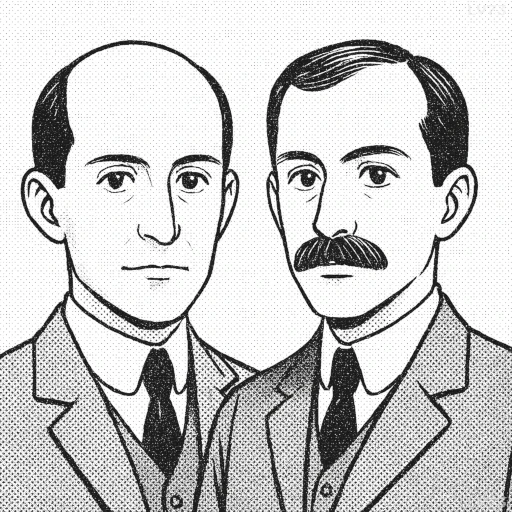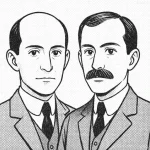“I confess that in 1901 I said to my brother Orville that man would not fly for fifty years.”

- Wilbur Wright: April 16, 1867 – May 30, 1912
- Orville Wright: August 19, 1871 – January 30, 1948
- American
- Aviation Pioneers, Inventors, Engineers, First to Achieve Powered, Controlled Flight
table of contents
Quote
“I confess that in 1901 I said to my brother Orville that man would not fly for fifty years.”
Explanation
This quote reveals Wilbur Wright’s moment of doubt and humility during the early stages of his and Orville’s aviation experiments. In 1901, after a series of discouraging test flights with their gliders, Wilbur temporarily lost faith in the feasibility of human flight. By admitting this, he emphasizes the unpredictable path of innovation, where even the most determined pioneers encounter discouragement and miscalculation.
The historical context makes this statement especially powerful. Just two years after voicing this doubt, the Wright brothers succeeded in achieving the first controlled, sustained flight of a powered aircraft in 1903. Wilbur’s confession is thus a reminder that temporary failure is not final, and that breakthroughs often come shortly after moments of deepest uncertainty. It also illustrates the scientific honesty and self-correction that defined the Wrights’ approach—they adjusted their data, improved their designs, and kept going.
In today’s world, this quote resonates with anyone facing daunting goals or long odds. From startup founders who struggle through early setbacks to scientists working on uncertain research, many breakthroughs are preceded by despair. Wilbur Wright’s reflection encourages perseverance and reminds us that predictions based on frustration can quickly be overturned by renewed effort and insight.
Would you like to share your impressions or related stories about this quote in the comments section?

